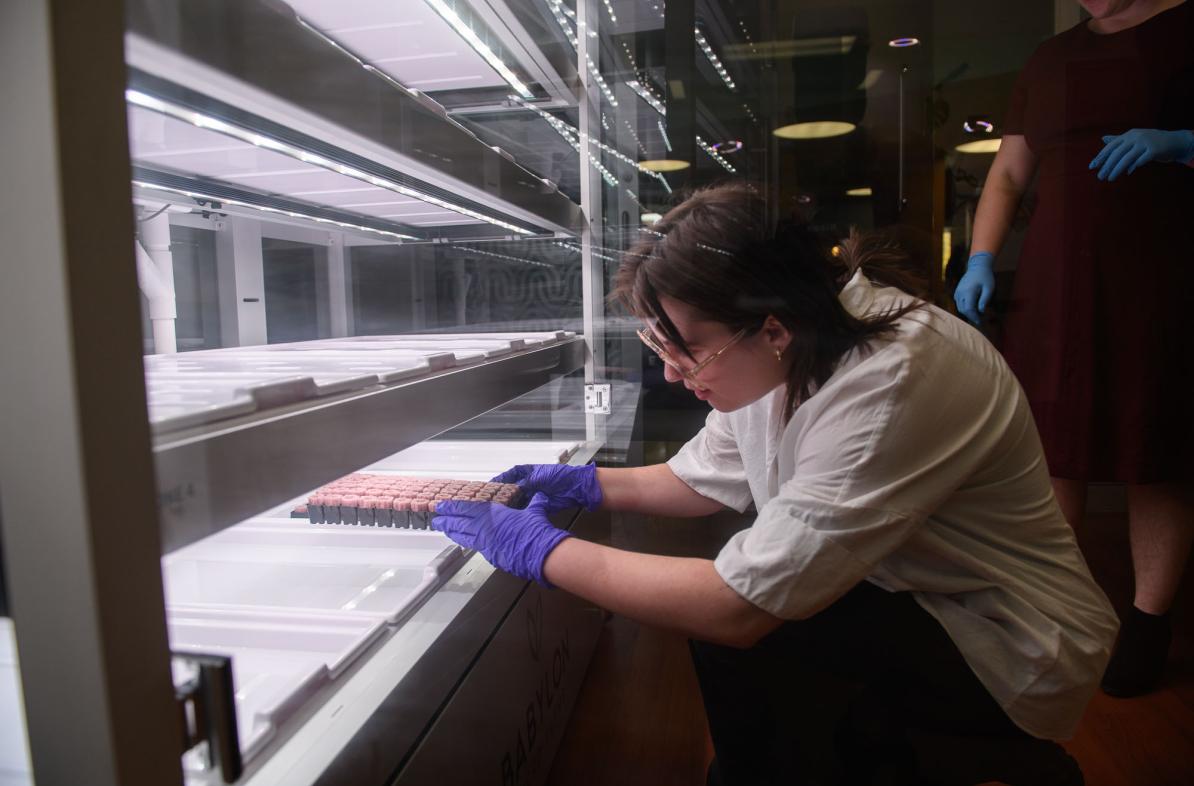Featured Image
For the media

Title
Sustainability focus at UW-Eau Claire: Hydroponic gardens
Story Categories
Authored on
Sustainability focus at UW-Eau Claire: Hydroponic gardens
Published on:
Intro text
The University of Wisconsin-Eau Claire has always been about “planting” the proverbial seeds of knowledge and wisdom, the cornerstone of education at a liberal arts college. This week, however, the attention has been on the literal planting of seeds, seeds that will take campus one step further in reaching sustainability goals.
Sections
For the media
For the media
Image download



